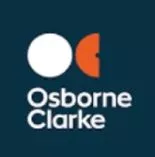Welcome to our latest Coffee Break in which we look at the latest legal and practical developments impacting UK employers.
Artificial Intelligence: latest developments for employers
Employers are increasingly looking at the impact of artificial intelligence (AI) in their workplace and the legal risks and practical considerations this brings. In a recent article for Compliance & Risk, a team of Osborne Clarke lawyers provide an overview of the legal and regulatory risks arising from AI deployment.
It considers:
- How AI works – a measure of "AI literacy" helps to understand the impact of this technology.
- Who controls the AI tool in question and the resulting scope for contractual protection.
- Emerging AI-specific regulation.
- Risks flowing from the inputs into an AI system, including both the training data and user inputs.
- Risks relating to the outputs of the system.
- Overarching considerations (including ESG).
You can read the published article on AI deployment risks in full or visit our catalogue of articles on artificial intelligence.
The House of Commons library has also, this summer, published a briefing looking specifically at the employment law implications of AI and regulatory reform. The briefing highlights the current laws which affect the use of AI in the workplace and provides a helpful summary of the UK government's current approach to regulating AI.
Safeguarding workers' rights: will we see new laws introduced?
We recently wrote about the impact of artificial intelligence on employee relations in the UK aviation industry, amid growing concerns around the integration of AI into the workplace and the direct and indirect impact on workers.
Earlier this year saw the introduction of a private member's bill into Parliament which seeks to regulate the use of AI technologies in the workplace and make provision about workers' and trade union rights in relation to the use of AI technologies. Although the bill is not expected to proceed (the second reading is scheduled for a date when the House of Commons is not expected to sit), it has placed a spotlight on how AI will affect individual workers and the wider workforce; considerations which may be all too easily overlooked as businesses seek to keep up to date with new technologies and the wider commercial considerations.
This week (4 September 2023) has now seen the Trade Unions Congress (TUC) launch an AI "taskforce" calling for "urgent" new legislation to "fill the current gaps in the UK employment law by drafting new legal protections to ensure AI is regulated fairly at work for the benefit of employees and employers". The taskforce is being led by the TUC, assisted by a special advisory committee made up of specialists in law, technology, politics, HR and the voluntary sector.
The taskforce is looking to publish an AI and Employment Bill in 2024 which it will then lobby to have incorporated into UK law.
Generative AI
As use of generative AI increases, employers are looking to understand what risks it raises, how these can be addressed in specific generative AI policies and what training is required for those using it for business purposes.
As employers explore developing and using generative AI tools in their workplace, consideration must also be given to the potential impact on employees developing and testing systems who are tasked with identifying and monitoring information which could cause offence.
Please contact your usual Osborne Clarke contact or employment partner, Olivia Sinfield, if you wish to discuss how we can support your organisation with policies, training and advice on these issues.
Right to participate in a share incentive scheme of substantial equivalence transferred under TUPE
We looked in our earlier Coffee Break at an Employment Appeal Tribunal (EAT) decision on whether the employee's right to participate in a share incentive plan established by the transferor transferred with an employee's contract of employment to the transferee under the Transfer of Undertakings (Protection of Employment) Regulations (TUPE). Regulation 4 TUPE provides that where the employment contract of an employee transfers from the transferor to the transferee under TUPE, "all the transferor's rights, powers, duties and liabilities under or in connection with any such contract shall be transferred... to the transferee..." (our emphasis).
The employee's rights in relation to that plan were set out in a collateral agreement (the partnership share agreement); there was no mention of the share incentive plan in the employment contract itself. The EAT agreed with the Employment Tribunal (ET) that the partnership share agreement "plainly arose 'in connection with' [the claimant's] contract of employment and thus fell within the scope of Regulation 4(2)(a)".
The EAT agreed with the ET that looked at broadly it was part of the overall financial "package" and would undermine the purpose of TUPE and possibly encourage attempts to try to avoid transferring financially significant benefits on a transfer if it was not regarded as such. The EAT distinguished the case from a previous Court of Appeal (CA) authority on the basis that here the plan was part of the employee's remuneration package and in that case the CA had only consider whether membership of the scheme in question arose "under" the employment contract, not in connection with it.
The Court of Session has dismissed the employer's appeal against this decision. The interpretation proposed by the employer "would enable employers to subvert the important protections, the Directive and the Regulations are designed to bestow, simply by creating separate contracts to confer various benefits additional to the basic salary". The purpose of the Directive "is to ensure, as far as possible, that the contract of employment or employment relationship continues unchanged with the transferee, in order to prevent the workers concerned from being placed in a less favourable position solely as a result of the transfer".
Difficulties can arise where transferring benefits are intrinsically linked to the outgoing employer and which an incoming employer is unable to replicate exactly: for example, flexible benefits schemes, share schemes and bonus provisions linked to company performance.
Case law has held that in circumstances where there is found to be a continuing entitlement to benefit from such schemes under TUPE, the transferee should provide a benefit of "substantial equivalence". Where a TUPE entitlement does potentially arise, given the inherent difficulties in providing benefits of substantial equivalence, transferees will need to conduct careful due diligence on the terms applicable to transferring employees and build appropriate protection, such as warranties and indemnities, into commercial documentation.
Care must also be taken in ensuring that, where changes will need to be made, they are carefully communicated in line with the information and consultation obligations that apply on a TUPE transfer, as well as managing employee relations at what may be an unsettling time.
Immigration update: rise in penalties for illegal workers
The Home Office has announced that, from early 2024, employers will face initial fines of up to £45,000 per illegal worker, an increase from the current level of £15,000. This is also set to increase from £20,000 to £60,000 for repeat breaches. The changes represent a 200% increase in the fines faced by employers.
The Home Office also said that a consultation will be launched later this year on what stronger action could be taken to deter licensed businesses from employing workers without lawful immigration status.
To view the full update click here
The content of this article is intended to provide a general guide to the subject matter. Specialist advice should be sought about your specific circumstances.


